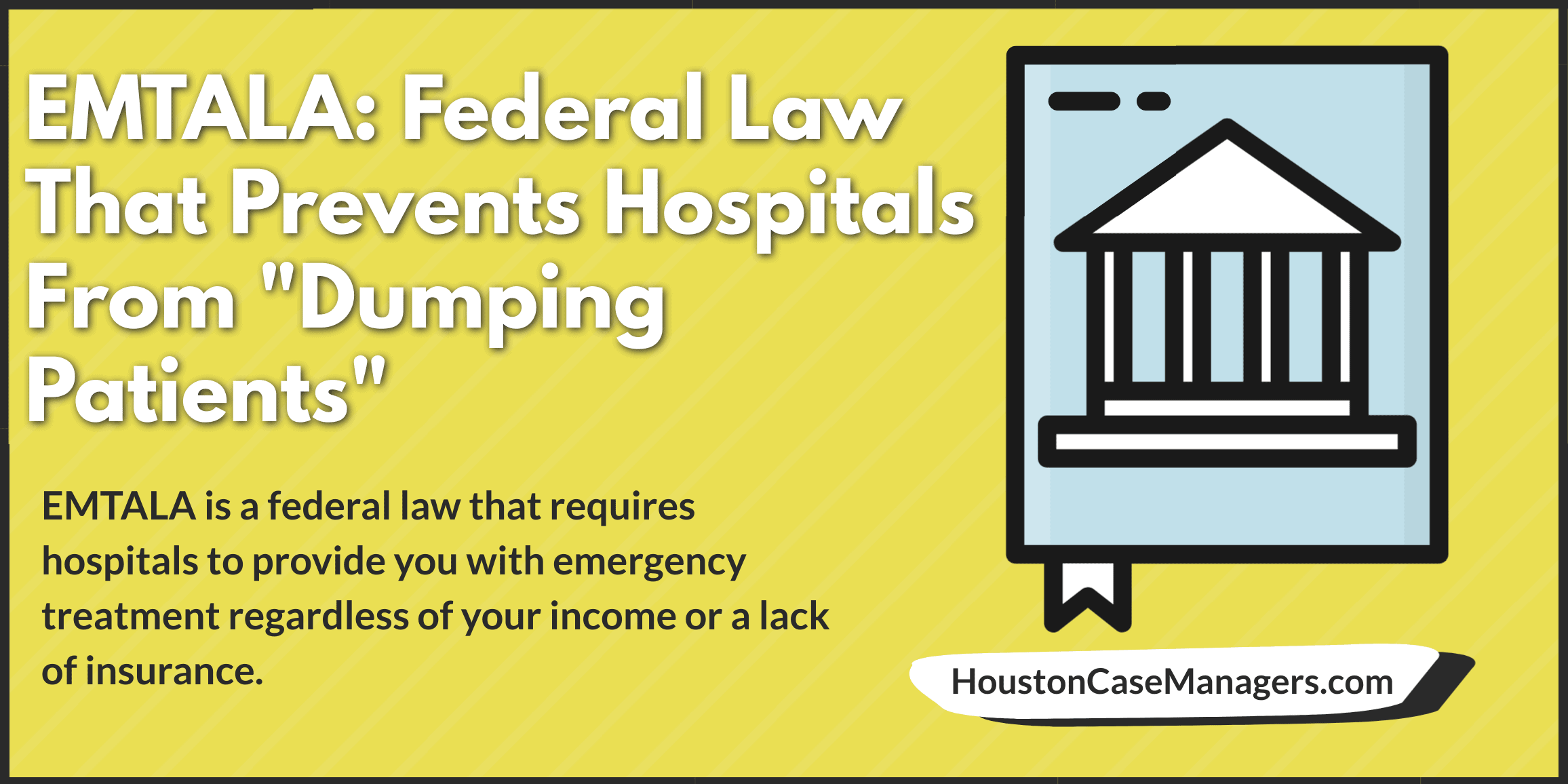Emtala Does Not Apply to Which of the Following Situations
What are the requirements for transferring patients under EMTALA. Instead it offers another way for a plaintiff to make a claim for damages another avenue in addition to claims under state law and a way to get his claim heard in Federal court if he wishes to do so.

Emtala Hippa Hitech Ada 2hrs Flashcards Quizlet
EMTALA does not apply to any person who is not on Hospital Property including offices and buildings on or next to the main hospital Campus when.

. EMTALA does not apply to police requests to gather evidence unless the situation suggests the patient may have an emergency condition. EMTALA does not apply to the transfer of stable patients. EMTALA does not apply to any person who is receiving treatment in an SHC or SCH outpatient department that is located more than 250 yards from the SHC or SCH inpatient buildings.
Of course malpractice standards and Medicare conditions of participation may still apply even if EMTALA does not. The court ruled that EMTALA may apply to urgent care clinics. The following two situations illustrate the above concepts.
EMTALA does not apply to the transfer of stable patients. EMTALA does not apply after a patient is admitted as an inpatient. Clearly EMTALA does not apply to situations where the patient presents with a minor complaint one that is not potentially life threatening.
The clinic argued that it was not a dedicated emergency department under EMTALA so EMTALAs requirements didnt apply. EMTALA does not apply after a. Once a hospital knows that a patient has an emergency medical condition there are three situations that allow the obligations of EMTALA to go away.
Under EMTALA a patient is considered stable for transfer if the treating physician determines that no material deterioration of the patients condition is likely to result from the transfer or is likely to occur. A physician certifies the medical benefits expected from the transfer outweigh the risks OR. EMTALA only applies to ED physicians not consulting services.
EMTALA does NOT apply to the following. King 834 F Supp 1328 1993. N Outpatients in the course of treatment n Inpatients n Off-campus departments that are not dedicated emergency departments n Buildings and services on or off hospital property that are not part of the hospital for Medicare purposes -- eg private physician offices skilled nursing facility home health.
Once a patient no longer has an EMC or is stable when discharged from the ED EMTALA no longer applies. EMTALA does not apply to an individual in an ambulance owned or operated by a hospital in the following. Of a hospital as defined under EMTALA regulations at 42 CFR 48924b EMTALA requirements do not applyIf an individual being treated at a Temporary Expansion Location needs addi tional medical attention on an emergent basis the site is required under the Medicare CoPs to arrange referraltransfer.
EMTALA begins when an individual enters an air or ground ambulance for purposes of examination or treatment of a medical condition at the hospitals dedicated emergency department when such ambulance is owned or operated by the hospital. EMTALA requires Medicare-participating hospitals with emergency departments to screen and treat the emergency medical conditions of patients in a non-discriminatory manner to anyone regardless of their ability to pay insurance status national origin race creed or color. EMTALA does not apply to patients who come for scheduled diagnostic therapeutic or outpatient appointments even if an emergency arises after they begin treatment.
A hospital with specialized capabilities that delays the treatment of an individual with an emergency who arrives as a transfer from another hospital ED could be in violation of EMTALA depending on the circumstances of the delay. However if the patient is unstable then the hospital may not transfer the patient unless. 2 the patient has been transferred to a higher level of care using appropriate equipment and personnel see posting entitled.
3 However the law does not apply to doctors offices or clinics so it has no effect on preventive or primary care. Admission to observation status does not meet CMSs regulatory definition of admitted 5 Thus EMTALA continues to apply to observation patients until they are stabilized or formally admitted to the hospital. EMTALA does not apply to any off-campus facility regardless of its provider-based status unless it independently qualifies as a dedicated emergency department.
EMTALA is not a mechanism for immediate response at the time of any occurrence in this instance at the time of delivery of a bornalive infant- The CMS Regional Office evaluates the complaint allegations to determine if criteria are met for. For example patients held in an ED chest pain unit or observation area continue to come under the umbrage of EMTALA. However any individual who presents with a medical condi-tion on property that is contiguous with the hospital must be treated according to EMTALA regulations DHHS 2003.
4 Follow up outside the hospital is not an EMTALA issue but is instead a hospital bylaw or protocol issue. What are transfers and how. Failing to report an invalid transfer by another hospital ie not reporting someone elses EMTALA violation which is itself a violation.
Patients who are registered as outpatients who have begun a course of outpatient care. An individual who has been admitted as an inpatient or a direct inpatient admission even when sent through the Emergency Department. First it should be determined whether a viable EMTALA claim exists and then second it would be determined whether it makes sense to bring that claim.
CMS rules regarding interpretation of EMTALA and dedicated emergency departments state that most urgent care centers will meet the revised definition of dedicated. There could of course be a claim for professional negligence for failure to make a diagnosis under State. EMTALA obligations do not apply to the following patientssituations.
If the patient is erroneously diagnosed and the physician mistakenly believes that he does not have an emergency medical condition when in fact he does several courts have held that the statute does not apply to that case. EMTALA regulations do not apply to private physicians offices that are located on leased hospital space. Next contrary to the misconception assumed by many including Mr.
EMTALA does not take the place of or limit any malpractice claim under state law. The provisions do NOT apply to an individual who has been admitted to a referring hospital. Meadows and Labrador EMTALA does not mandate treatment of non-emergent conditions.
EMTALA does not apply to police requests to gather evidence unless the situation suggests the patient may have an emergency condition. This makes not participating in EMTALA impractical for nearly all hospitals. Refusal to accept a perfectly valid transfer from another hospital.
1 the patients emergency medical condition has been stabilized. Therefore in this situation EMTALA does not extend to the on-call physicians office.

Emtala Federal Law That Prevents Hospitals From Dumping Patients

No comments for "Emtala Does Not Apply to Which of the Following Situations"
Post a Comment